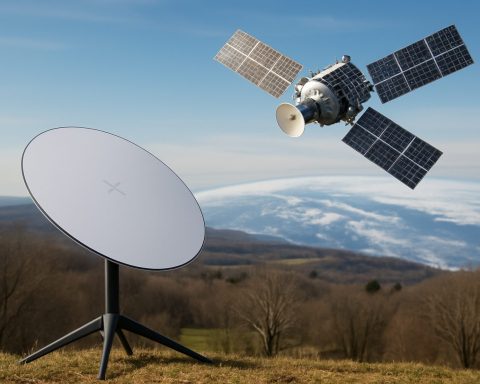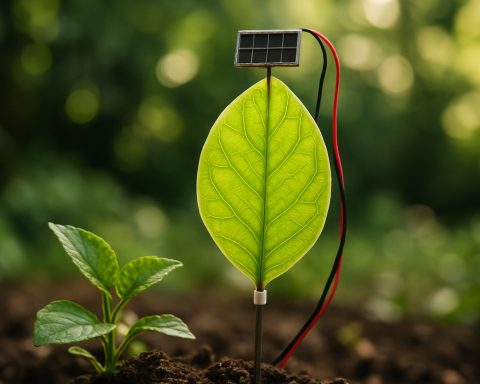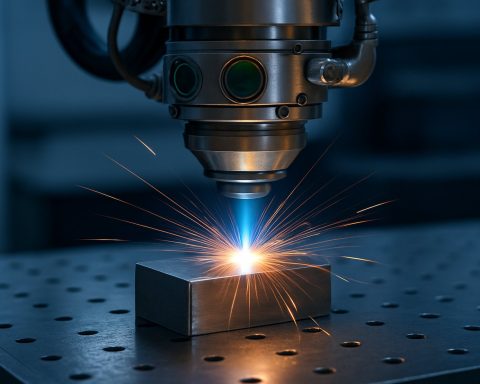- Porsche is pioneering the recycling of high-voltage EV batteries to transform them into valuable materials.
- Key materials such as nickel, cobalt, manganese, and lithium are extracted through a process starting with mechanical shredding into “black mass.”
- This recycled “black mass” undergoes refinement to maintain pristine quality, ensuring performance standards for new batteries.
- The initiative aligns with EU regulations demanding increased recycled content and aims to validate these materials through rigorous testing.
- Porsche’s multi-phase project exemplifies a commitment to sustainability and the circular economy, turning waste into resources.
- This strategic approach positions Porsche as a leader in sustainable production and innovation, preparing for future geopolitical and environmental challenges.
Picture a world where yesterday’s technology fuels tomorrow’s innovation. Porsche is steering us toward this vision with a pioneering initiative to recycle high-voltage electric vehicle (EV) batteries. These batteries, once dismissed as mere automotive relics, are being transformed into a treasure trove of valuable materials.
The heart of this endeavor lies in a promising process: recycling used batteries to harvest critical elements like nickel, cobalt, manganese, and lithium. Through mechanical shredding, these exhausted batteries break down into a granular form known as “black mass.” From this dark powder, the journey begins to reclaim purity and performance.
Imagine a staggering 65 tonnes of this “black mass” produced from development vehicles—each grain holding the promise of new life. The transformation doesn’t stop here. Subsequent refinement purifies these elements, paving the way for their reintegration into fresh batteries. Porsche is adamant that maintaining the pristine quality of these materials ensures that their legendary performance standards remain uncompromised in new EVs.
The stakes are high, as the automotive giant ventures into the third phase of their project. By incorporating recycled materials into new battery cells, they aim to validate their effectiveness through rigorous real-world testing. This closed-loop model not only underscores Porsche’s commitment to sustainability but also strategically aligns with anticipated EU regulations demanding increased recycled content and transparency by 2031.
For Porsche, this isn’t just a pilot project—it’s the embodiment of a bold strategy. By ramping up efforts to secure and recycle these precious materials, they position themselves not only as leaders in sustainable production but also as innovators prepared to tackle the geopolitical and environmental challenges of tomorrow.
As Porsche looks to the horizon, their multi-phase project serves as a blueprint for the future. It encapsulates a commitment to the circular economy, transforming waste into a resource and ensuring that every vehicle manufactured honors both consumer expectations and global stewardship.
Revolutionizing Electric Vehicle Sustainability: Porsche’s Leap into Battery Recycling
Introduction
Porsche’s ambitious quest to recycle high-voltage electric vehicle (EV) batteries sets a new benchmark for sustainability in the automotive industry. The company’s innovative approach not only aims to reclaim valuable materials like nickel, cobalt, manganese, and lithium from exhausted batteries but also strives to maintain the pristine quality and performance standards of these materials when reintegrated into new batteries. This pioneering process supports both environmental objectives and compliance with anticipated European Union regulations demanding increased recycled content by 2031.
Behind the Scenes: The Battery Recycling Process
1. Mechanical Shredding: Used EV batteries undergo mechanical shredding to be broken down into a granular form known as “black mass.”
2. Material Refinement: This black mass, rich in critical elements, is subjected to advanced refinement technologies to extract and purify each element.
3. Reintegration and Testing: The refined materials are then utilized in the creation of new battery cells. Porsche conducts extensive real-world testing to validate the effectiveness and performance of these recycled materials.
Benefits of Porsche’s Battery Recycling Initiative
– Environmental Impact: Reducing the need for virgin material mining mitigates ecological impacts and conserves natural resources.
– Economic Advantages: Recycling diminishes material costs, reducing overall production expenses and potentially lowering EV costs for consumers.
– Regulatory Compliance: By incorporating more recycled content, Porsche aligns with future EU regulations, ensuring market competitiveness.
– Sustainability Leadership: Porsche positions itself at the forefront of sustainable innovation, promoting a circular economy where waste becomes a valuable resource.
Industry Trends and Market Predictions
– Global EV Market Growth: The electric vehicle market is poised to grow exponentially, driven by technological advancements and environmental policies. This growth underscores the importance of sustainable battery supply chains.
– Recycling Technologies: Innovations in battery recycling technology continue to evolve, promising more efficient and cost-effective solutions for extracting critical minerals.
– Resource Security: Global dependence on a few countries for battery materials poses geopolitical risks that can be alleviated by recycling initiatives.
Practical Takeaways for Consumers and Investors
– Consumers: Supporting brands that prioritize sustainability, like Porsche, encourages more companies to adopt eco-friendly practices.
– Investors: Companies involved in battery recycling technology present promising investment opportunities due to the rising demand in the EV sector.
Conclusion
Porsche’s battery recycling project is more than an environmentally-focused initiative; it’s a strategic move setting a precedent for the automotive industry’s future. As EV adoption accelerates globally, sustainable practices such as these will play a pivotal role in shaping the industry’s trajectory.
For more insights into automotive innovation and sustainability, visit Porsche.
Quick Tips for Sustainable Automotive Choices
– Research Brands: Look for manufacturers who emphasize sustainability and have a clear plan for recycling and eco-friendly practices.
– Value Longevity: Consider the entire lifecycle of vehicles you purchase and the company’s commitment to circular economy principles.
– Stay Informed: Keep abreast of industry developments through reputable automotive and environmental news sources.









